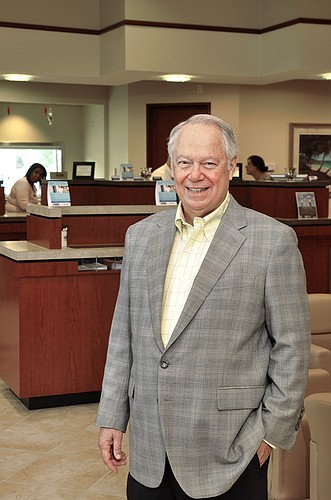- July 26, 2024
-
-
Loading

Loading

Gulf Coast banks are lending again.
As the region's economy continues to recover, community banks from Tampa to Naples are making more loans to businesses and individuals.
For the year ending Sept. 30, the 39 banks based on the Gulf Coast boosted lending by nearly 19%, according to the Federal Deposit Insurance Corp. Statewide, banks in Florida increased lending 15% in that one-year period.
Consider Naples-based First Florida Integrity Bank, which posted a 37% increase in net loans to $604 million in the year ending Sept. 30, according to the FDIC. “Things have improved significantly in the last two years,” says Gary Tice, chairman and CEO of First Florida Integrity, which recently opened a branch on Kennedy Boulevard in Tampa.
In particular, First Florida Integrity posted 45% residential lending growth in the year ending Sept. 30. “Values have come back in Naples, though I think they've come back too fast,” he says.
“Commercial real estate has been very positive,” says Tice, whose bank saw 20% loan growth in that sector. The Naples area has been particularly strong, he says. “You won't see very many vacant establishments.”
Tice says the bank's loan growth is due to its team-based approach. Lenders from all departments of the bank meet once a week to discuss customers' loan needs. “We do not have the silos that many banks have,” Tice says.
Some of the banks posting the biggest annual-percentage increases in loans have been among the region's smallest. For example, Southern Commerce Bank in Tampa posted a 56% increase in loans to nearly $31 million for the year ending Sept. 30. Officials with Southern Commerce, which is owned by Dickinson Financial of Kansas City, couldn't be reached.
But even the largest banks in the region, such as USAmeribank of Largo, posted significant growth. Al Rogers, executive vice president and senior lender, says the bank has financed a wide range of customers from diverse industries. “That's what we love about the Tampa Bay economy,” says Rogers. “It's not as nearly reliant on tourism as some of the Florida markets.”
USAmeribank has financed businesses ranging from doctors and dentists to light manufacturing and shipping-related companies. Commercial real estate lending included restaurants, convenience stores and even bank properties. The bank makes residential loans to people who have trouble finding a conventional 30-year mortgage because they are self-employed entrepreneurs or have investment income.
Even as the economy has improved and creditworthy customers are borrowing more, the competition has increased. “There are a lot of banks that are lending today that weren't lending a year ago,” Rogers says.
And sometimes residential-loan growth reflects improvement in business conditions. For example, at FineMark National Bank & Trust, entrepreneurs are borrowing based on the strengthening value of their homes.
“In one form or another, about 60% of our loans are secured by residential real estate, but that doesn't mean that it's a refinance or purchase,” says Joseph Catti, president and CEO of FineMark. “Maybe there's a business owner who has an expensive home and the most efficient way to borrow is to use the house as collateral.”
As the economy recovers, banks are beefing up their lending and administrative support staff. “We added 58% more staff to the personnel roster,” says John Barrett, president and CEO of First Citrus Bank in Tampa. “We've added more business bankers. We've expanded the number of our underwriters in the credit department.”
First Citrus' business customers hail from a wide range of industries, including professional services such as medical practices. “This year we're doing a $3 million surgical facility near the hospital,” Barrett says, for example.
At NorthStar Bank in Tampa, President and CEO David Stone says many medical practices are combining and that offers opportunities for financing new facilities and equipment. “The doctors groups that we deal with are doing quite well,” he says.
In addition, NorthStar is financing small manufacturing concerns, architects and attorneys. “It's the kind of business we really like,” says Stone.
As banks become healthier, competition is increasing. For example, NorthStar has resolved past problem loans and it's now focusing on new business. “We're just out there trying to develop business, which the bank was not doing before,” says Stone. “You have to go out and get the business because it's not going to come to you.”
